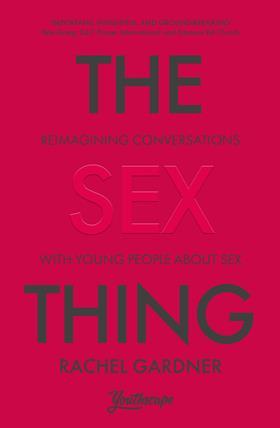Rachel Gardner urges us to get over our embarrassment and fear of saying the wrong thing, because we have a vital role in helping to shape young people’s attitudes towards relationships and sex
I once heard an astronaut talk about being on a space station when COVID-19 broke out on earth. Looking down from the dark void of space, she couldn’t get her head around the fact that 7.5 billion people were all being affected by the same virus. She felt so far away, so helpless in the face of such distress. With the advancement in sex-tech, increasing pressure to be sexually active and changing societal attitudes, I wonder how many of us might feel the same when we look at the young people in our families or churches?

Embracing the challenge
Culture is changing rapidly. We’re preparing our children for a very different world – and one that we all need to be able to talk about. But talking about relationships and sex can be challenging. There may be things our children and young people are facing that we never had to think about. We can all sense that overwhelming fear of: “What happens if I say the wrong thing?” Or the bewilderment of: “How do I even start to have the chat?”
But whatever our reasons for not talking about sex, we need to because the way young people hear sex talked about informs what they think about sex, and what they think about sex informs how they behave when it comes to their worth, choices and responsibilities.
So what might happen if as parents, church leaders and youth workers, we were to talk about sex properly? Not in general terms, but in specifics. What if we were to give names to the things we want to talk about? Things like love. Pleasure. Power. Porn. Attraction. Shame. Faithfulness. What if we were to call body parts by their real names? Parts like vagina, penis, breasts. And what if we were to talk about body-related things, like puberty, thrush infection, erectile dysfunction, orgasms? How might young people benefit if we were prepared to reimagine our conversations about sex – all of it? What information and encouragement might we need to stop us feeling ill-equipped and overwhelmed in our conversations?
What our young people want
In writing The Sex Thing (SPCK) I’ve listened to the voices of hundreds of Christian young people in the UK about how they would like us to engage with them on this topic. When asked if they think the Church should be talking to them about sex, 94 per cent said yes. When asked what they’d like the Church to make space to talk with them about, the top three answers were:
1. How to have healthy relationships
2. What the Bible says about sex
3. How to set sexual boundaries in pre-marital relationships

These young people aren’t mirroring youth culture. From mass media to the porn industry, nothing in wider culture is supporting them to know how their faith identity impacts their choices around relationships and sex. What they long for is a Church that listens, then speaks without judgement. A Church that is full compassion, clarity and courage.
They need a Church that doesn’t talk about a ‘thing’ or an ‘it’. They need us to talk about SEX in all its complexity and sacred possibility. So let’s start talking.
































